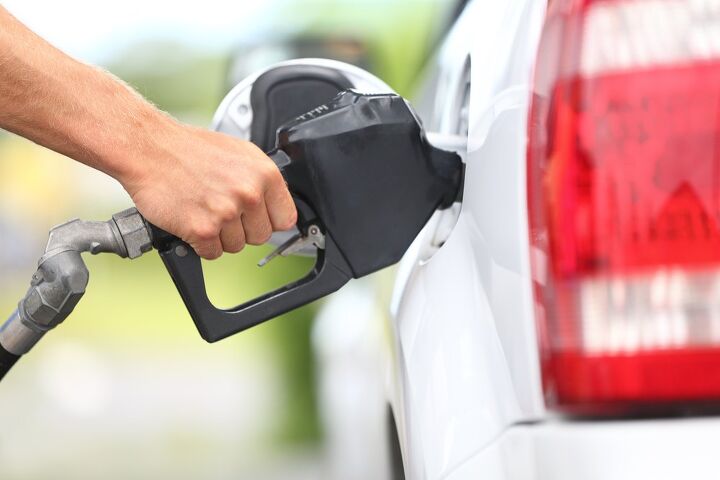Gas War: Biden Admin Decides Against Refilling Dwindling Oil Reserves, Citing High Prices

The Biden administration has decided against purchasing oil for the Strategic Petroleum Reserve after promising to refill the nation’s emergency energy supply after it reached a 40-year low. This news does not bode well as we head into the summer months when fuel prices tend to be higher.
America’s oil reserve is currently authorized to hold more than 720 million barrels of emergency crude oil that can be released under certain conditions. While the exacting thresholds are fairly vague, emergency drawdowns have occurred in the past due to oil supply disruptions stemming from trade embargoes, natural disasters, and warfare. The Biden administration argued that both the COVID-19 pandemic and Russo-Ukrainian War qualified.
During the pandemic, demand for fuel temporarily declined as people stopped driving and many refineries were idled. However, when war broke out in Eastern Europe, demand spiked and regional energy prices quickly became untenable. That issue was only exacerbated by the Nord Stream pipeline being sabotaged, effectively crippling Russian energy exports to Germany and its neighbors.
The Biden’s administration countered by selling more than 40 percent of the Strategic Petroleum Reserve in 2022. While the stated goal was to aid Europe in a time of trouble, there’s been rampant speculation that the real reason was to exploit Russia’s sudden absence in the energy market. Much of this hovers around the fact that oil companies were following suit and that a significant portion of the supply was sold to China. Others, such as House Natural Resources Chair Bruce Westerman (R-AR), have speculated that the White House was attempting to drive down energy prices ahead of the election. Though there doesn’t seem to be much chance of that happening now unless the government is willing to dip back into the supply.
According to the Department of Energy, the United States has been attempting to refill its oil reserves since 2022. But it estimates the total volume to be hovering around 363 million barrels after the most recent drawdown. That's the lowest level witnessed in over four decades. As a result, the White House has faced consistent criticism from political opponents for its decisions and has asserted that the country has sufficient reserves to weather any coming storms.
“I am not worried about the reserve levels at all,” Energy Secretary Jennifer Granholm told a House oversight committee last fall. “It is the largest strategic reserve in the world.”
That said, the White House had still promised to refill waning U.S. oil reserves and now appears to be going back on its word. But the administration’s reasoning is down to the fact that the prices are just too high right now.
From Bloomberg:
The Energy Department said it was “keeping the taxpayer’s interest at the forefront” in its decision not to purchase as many as 3 million barrels of oil for a Strategic Petroleum Reserve site in Louisiana. The plan for the barrels to be delivered in August and September had been announced in mid-March.
“We will not award the current solicitations for the Bayou Choctaw SPR site and will solicit available capacity as market conditions allow,” the department said. “We will continue to monitor market dynamics.”
The move follows a rally in crude prices, with US benchmark West Texas Intermediate on Tuesday breaking above $85 a barrel for the first time since October. The Biden administration has a target to buy oil at $79 or lower to refill the reserve, though spent an average of about $81 a barrel in its latest purchase of 2.8 million barrels late last month.
It appears that the United States sold off its oil when prices were low and is not in a position where it would have to resupply during a period where prices were high. While that would indeed be an inconvenience to taxpayers, the Biden administration and Congress have also run with massive spending packages that have encouraged more inflation — effectively resulting in indirect taxation by devaluing the dollar.
Cheap gasoline also doesn’t seem to have been something the current administration was particularly concerned with until recently. Fuel prices skyrocketed almost immediately after Biden was pronounced winner of the 2020 election, presumably due to his policy on mitigating domestic drilling. But even that’s a contentious statement because the United States has actually seen an increase in oil production with the relevant companies enjoying record profits.
Drilling under Biden has actually outpaced what was seen when Donald Trump was in office. The Interior Department's Bureau of Land Management has data showing it granted 3,377 permits to drill on public land in 2023. By the end of that year, the country was churning out nearly 13 million barrels of oil per day — a new record.
Meanwhile, the White House still claims to be bent on the rapid expansion of all-electric vehicles and converting the nation toward renewable energy. It has likewise promised to adhere to numerous global climate agreements that Trump said the United States should back out of in order to keep energy prices low and remain competitive with economic rivals like China.
Those hoping for some easy oil predictions are going to be disappointed. Production has indeed accelerated. But so has global demand and the United States is exporting far more oil to other countries than it’s keeping for itself. While this has resulted in a staggering amount of profitability for oil companies, American drivers are still seeing gasoline prices creeping back up beyond the $3.50 per gallon average. That’s likely to continue through the summer unless we tap back into dwindling reserves we may soon need for other purposes as warfare has likewise broken out in the Middle East. The United States likely has the capacity to produce fuel for itself and at extremely low prices. But the government undoubtedly wants to export fuel when possible to keep the world dependent on the dollar for trade as a national security issue and oil firms are going to want to see the highest possible returns on their investments.
[Image: Maridav/Shutterstock]
Become a TTAC insider. Get the latest news, features, TTAC takes, and everything else that gets to the truth about cars first by subscribing to our newsletter.

A staunch consumer advocate tracking industry trends and regulation. Before joining TTAC, Matt spent a decade working for marketing and research firms based in NYC. Clients included several of the world’s largest automakers, global tire brands, and aftermarket part suppliers. Dissatisfied with the corporate world and resentful of having to wear suits everyday, he pivoted to writing about cars. Since then, that man has become an ardent supporter of the right-to-repair movement, been interviewed on the auto industry by national radio broadcasts, driven more rental cars than anyone ever should, participated in amateur rallying events, and received the requisite minimum training as sanctioned by the SCCA. Handy with a wrench, Matt grew up surrounded by Detroit auto workers and managed to get a pizza delivery job before he was legally eligible. He later found himself driving box trucks through Manhattan, guaranteeing future sympathy for actual truckers. He continues to conduct research pertaining to the automotive sector as an independent contractor and has since moved back to his native Michigan, closer to where the cars are born. A contrarian, Matt claims to prefer understeer — stating that front and all-wheel drive vehicles cater best to his driving style.
More by Matt Posky
Latest Car Reviews
Read moreLatest Product Reviews
Read moreRecent Comments
- EBFlex It had a good run. But personally I wouldn’t want a truck that dates back to 2009ish when it was introduced. Still better than a new Ford though
- Arthur Dailey Still prefer the 59's. Auto styling as mentioned was in the 50's derivative of military aircraft styling, and the 'space age'. The '59 Caddies 'nailed this' in an in your face manner. If you are going to put fins on a car, why use small, vestigial, almost apologetic fins, like M-B did with their 110? I did have an appreciation for Dagmars, but the front end/grille of the '59 is so much cleaner and more modern than the '58.As for the back/trunk of these vehicles the '58 appears to me to be clunky and cluttered. Corey what about a column on the Eldorado Biarritz Convertible from 1959? I need to see if my memories are correct or have been tainted over time.
- Oberkanone Why would you want one? Nostalgia?
- Arthur Dailey Really enjoy seeing these loyal survivors. The listing seems to prove the adage that the person who owns the car is more important than the make or model of the car when it comes to long term service/reliability.
- ToolGuy If you could see how well my FFIE position is faring, you would understand how brilliant I am not.


































Comments
Join the conversation
The SPR was necessary when most of the oil the U.S. was consuming came through the Persian Gulf when that area was extremely unstable. We now produce more than enough oil to fulfill our wants and needs, leaving the SPR a lot less important. Consider the Permian Basin our strategic petroleum reserve.
"effectively resulting in indirect taxation by devaluing for the dollar."
Perhaps you could study the aspects more before you write?
This article reads like a political opinion piece, or an advert selling GOLD to people afraid that "Iran and Russia" no longer use US $ to transact business.
The US$ is stronger, than when Biden took office, it is today stronger than it was last week, this time.
Inflation in the US is decidedly lower than every other G-7 / G-20 Nation.
To quell your concern, regarding the SPR, we could go back to a "non export" policy that ended during the Obama Admin.
We produce a more than sufficient "our" nation's Dino Juice needs.